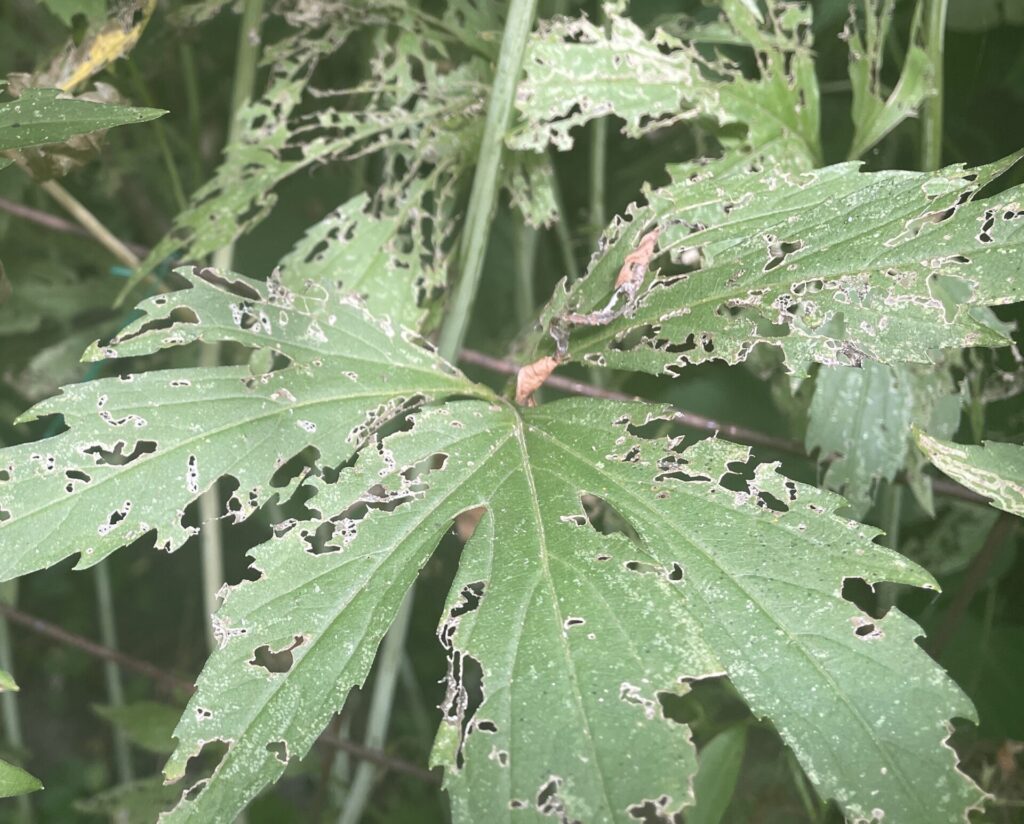
Something is decimating the leaves of my golden glow, echinacea, and other plants. I think it cannot be slugs as the plant is very tall and the high up leaves are also full of holes.
Thank you for contacting the Toronto Master Gardeners. Golden Glow, also known as cutleaf coneflower (Rudbeckia laciniata ‘Hortensia’) is a beautiful flowering perennial, especially for this time of year. I am sure it provides a very nice colour contrast against your Echinacea.
In my research, Backyard Gardener describes possible culprits for Golden Glow as either being aphids or slugs and snails. I suggest you do a thorough search for both kinds of pests. Slugs and snails are more detectable early in the morning and at the end of the day and will leave slimy trails on the plants. Aphids are small and come in a variety of colours. A tell-tale sign of aphids is the sticky honeydew they leave behind.
The Home and Garden Information Centre at Clemson University lists some additional pests such as caterpillars, Japanese beetles and two-spotted spider mites so there are other possibilities as well.
Determining the type of insect that is damaging your plants is really important to figuring out how to get rid of them. This slideshow from HGTV has close-up photos of common garden pests which can help you identify the culprits, as there may be more than one pest causing the damage. Once you have determined the types of pests, please consider using environmentally-friendly methods to deal with the problem. Spraying with a garden hose to knock off the insects is a good first step and environmentally-friendly solution, as well as handpicking the insects that you can see. This second article from HGTV provides an easy-to-read summary of a variety of insect deterrents made from products you may already have in your kitchen. The Toronto Master Gardeners does not advocate the use of toxic pesticides to deal with garden pests.
Finally, healthy, robust plants growing in nutrient-rich soils and with adequate water for their species is the best way to deter pest infestations, All gardens will have pests and many of them are beneficial in small quantities. And all gardeners will experience infestations from time to time. This article from the University of Minnesota summarizes the how-to’s of maintaining a healthy garden without the use of chemicals. While the article is directed more toward vegetable growers, many of the recommendations apply equally well to urban gardeners with flowering plants.
Pest infestations are not pleasant to see or to deal with. I wish you every success with this current gardening challenge.

